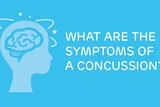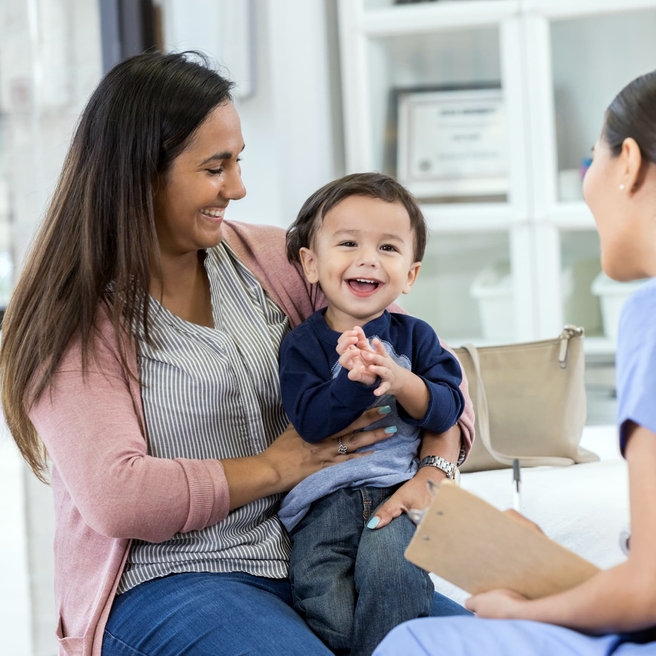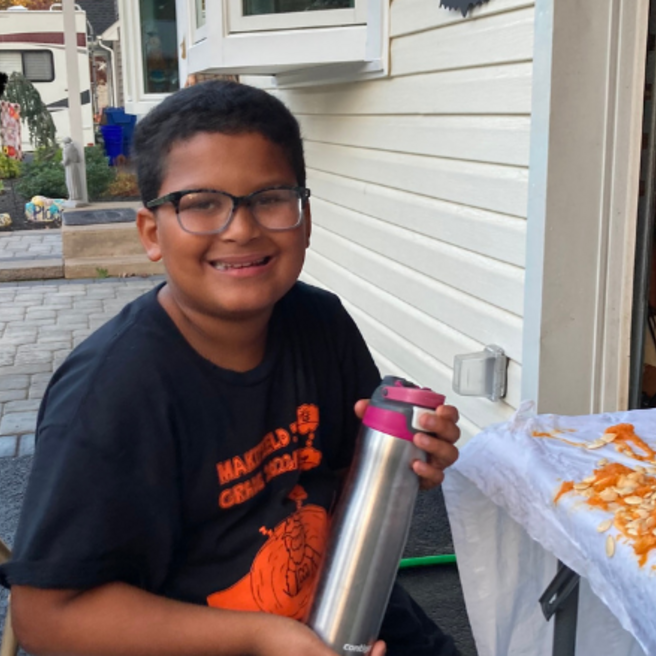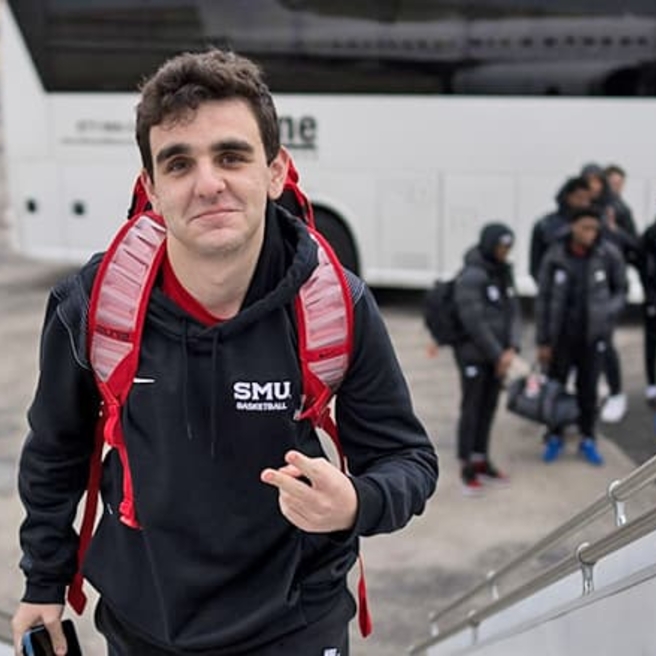The Truth on Concussions: Mythbusters
Parent 1: I make sure my child wears her helmet so she's not at risk for a concussion.
Matthew Grady, MD: Helmets were designed to prevent skull fractures. They do a great job. Unfortunately, we haven't been able to design a helmet yet that prevents concussions.
Christina L. Master, MD: Since a concussion is caused by the fact that your brain is shaking in your skull, you can imagine there's no way a helmet can prevent that. It may reduce some of the forces that may result in a concussion, but a concussion is not ever going to be prevented by having a helmet.
Parent 2: I really don't have any worries about my son because he's one of those kids that just always seems to bounce back.
Matthew Grady, MD: While children bounce back from most injuries, we know that children take longer to recover from concussion than adults.
Christina L. Master, MD: Certainly, there are some cases where kids can have a concussion and they can recover within a few days. But there are definitely many cases where kids can take longer, and so you want to be ready for that and not just assume that they'll have a short recovery.
Parent 3: I think she was OK. She didn't pass out. She got up and walked right off the field.
Matthew Grady, MD: A concussion occurs when there's a hit to the head followed by a disturbance in the way the brain works. Loss of consciousness occurs only in about 10 percent of concussions.
Christina L. Master, MD: If you lose consciousness, you probably have a concussion. But even if you don't lose consciousness, you may still have a concussion, so it's really important to remember that fact.
Parent 4: I want to make sure my daughter doesn't have a concussion. Can you do a CT scan?
Matthew Grady, MD: There are no specific tests that prove you have a concussion. MRI and CT scan do not definitively say you have or do not have a concussion.
Christina L. Master, MD: What they're used for early on in the emergency room is to see if your child has a bleed in the brain, not to diagnose a concussion. So if you get a CT, it's not meant to diagnose a concussion. It's meant to rule out a more severe injury, such as a brain bleed.
Parent 5: I've heard it's important to wake up a child if they have a concussion just to make sure they're OK every couple of hours. Is that really true?
Christina L. Master, MD: You do not have to wake up your child every couple hours at night if you're worried about a concussion.
Matthew Grady, MD: In fact, waking them up may slow down the healing process.
Christina L. Master, MD: It's really important to remember, then, that rest is the most important treatment for a concussion, and waking your child up every couple hours overnight won't help them get the rest that they need to recover from the concussion.
Student athlete: I can handle the pain. I can play through the pain. I think I've played through concussions before.
Christina L. Master, MD: So it's important to realize that with a concussion, there is no gain from pain, that if you play through the pain, you run the risk of actually making your injury worse and potentially missing more than just a few games, and potentially the entire season.
Matthew Grady, MD: Immediately after the injury, the body is trying to heal itself. And if you divert fuel from the body by exercising or doing too much cognitivity, you slow down the process. If, during that process, you get hit again, the consequences can be catastrophic and can involve months to recover.
Christina L. Master, MD: The quickest way to get better from a concussion is to take care of it right away, pull yourself out, and give yourself the chance to get better. Once you're better, you'll actually get back to play probably sooner than if you continue to play through the pain.
Q&A About Concussion Symptoms
Student athlete: How do I know if I have a concussion?
Matthew Grady, MD: Unfortunately, we know that concussions occur more in the pediatric and adolescent population than in any other population. A concussion occurs when there's a hit to the head followed by a disturbance in the way the brain works. So if your child sustains a concussion, it's important that they rest and see a medical care provider.
Parent : So what are the signs of a concussion, and when should I really be concerned?
Matthew Grady, MD: So I say a concussion is like a snowflake. No two are the same.
Christina L. Master, MD: It's important for the physician to pull the entire story together with the injury, the symptoms that developed after the injury, and then their physical exam and how your child looks right now. Only 10 to 20 percent of concussions result in loss of consciousness. So if you lose consciousness, you probably have a concussion. But even if you don't lose consciousness, you may still have a concussion.
Matthew Grady, MD: Symptoms of a concussion include physical symptoms such as headache, nausea, vomiting, dizziness, total body being tired, like fatigue -- also, cognitive symptoms such as difficulty remembering, difficulty concentrating, or feeling mentally foggy. Emotional symptoms are common in a small percentage of concussions, and these can include nervousness, anxiety or perseveration.
Christina L. Master, MD: It's important to watch your child the first few hours after an injury to make sure they're not getting sufficiently worse that it would make you warrant a visit to the emergency room.
Matthew Grady, MD: So if the child has sustained a head injury, and we're unclear if there's been a concussion or not, then a parent should contact their primary care doctor and review the symptoms of concussion. In a small subset of head injuries, they may have symptoms that are more than what we would consider a concussion, and those probably require urgent medical evaluation, either 911 or an emergency room. Those symptoms would include slurred speech, persistent vomiting, mental confusion, and symptoms that are getting worse with time. By recognizing the signs of concussion early in the process, we can start care, which is rest. This usually leads to better long-term outcomes, and so early recognition of concussion helps with recovery.
Q&A About Concussion Diagnosis and Evaluation
Parent 1: How would you diagnose a concussion?
Christina L. Master, MD: So despite all of our advances in medical technology, concussion is still a clinical diagnosis. It's important for the physician to pull the entire story together with the injury, the symptoms that developed after the injury, and then their physical exam and how your child looks right now.
Matthew Grady, MD: As part of the more in-depth concussion evaluation, we would do a physical exam. And that would include eye tracking and balance. These are commonly impaired with concussions. Additional testing, such as cognitive testing, which can include simply asking questions or asking to repeat digits forward and backwards as a way to get a sense for brain function, help us in making that diagnosis. There are no specific tests that prove you have a concussion.
Christina L. Master, MD: A CT and an MRI will not detect any signs of a concussion. What they're used for early on in the emergency room is to see if your child has a bleed in the brain, not to diagnose a concussion.
Matthew Grady, MD: There's no blood test for a concussion. There's no computerized test that will tell you if you have a concussion or not. A concussion occurs after you have a head trauma, followed by symptoms or deficits on physical exam. Each of those individual pieces is a piece of the puzzle. We have to put all the pieces of the puzzle together to make the clinical diagnosis of a concussion.
Parent 2: How do you know when a concussion is getting better?
Christina L. Master, MD: Sometimes children take longer than adults to get better. Certainly, there are some cases where kids can have a concussion and they can recover within a few days. But there are definitely many cases where kids can take longer. So you want to be ready for that, not just assume that they will have a short recovery.
Matthew Grady, MD: The concussion will get better when the symptoms start to improve. So we may say no school work, no text messaging, no video games immediately after the injury. As they start to get better, we'll add in school work. If they tolerate that well, that's a sign that their concussion is starting to improve.
Christina L. Master, MD: The other thing that you're looking for is making sure that they can tolerate full physical activity. If they have no symptoms and their physical exam in the office is completely normal, looking for the specific deficits that we know that we see in concussion, then they can be cleared for contact practice, and then after contact practice, they can go to contact play.
Q&A About Cognitive Rest After a Concussion
School Nurse: I've had a lot of training over the past year in concussion management. Can you review why cognitive rest immediately after a concussion is so important?
Matthew Grady, MD: So the idea of cognitive-physical rest early in the process really means that we're trying to divert all of our resources into healing.
Christina L. Master, MD: Your brain really needs to use the energy and the fuel that it's getting right after the injury to heal and not to exercise and think and do other things. So resting is a really important part of getting better.
Matthew Grady, MD: If we think of it in simple terms, after the brain is injured, the body needs fuel to heal the brain cells. If we divert fuel to other activities, such as schoolwork or running around, we take away fuel, potentially, from those healing cells. We know that early in the process there's a big demand for those cells to heal, and so we want to minimize the demands for other things and divert all our resources to those injured cells.
Parent : What is cognitive rest exactly, and what does it mean for my child's day-to-day routine?
Matthew Grady, MD: So the idea of cognitive physical rest early in the process really means that we're trying to divert all of our resources into healing and, in our athletes and young children, growing, as well. And so we're trying to minimize the demands on the brain during this critical time. Sometimes cognitive rest is misinterpreted as complete rest. I'm not asking individuals to do nothing. I'm asking them to minimize the activities that increase their symptoms. So I want individuals to remain social. They're able to interact with their friends. We do allow individuals to walk around. We do allow them to talk on a phone with their friends. We do allow them to do light activities, such as cooking. We prefer individuals not work out hard or do activities that would make them sweat. We also like to minimize activities that are not necessary, and so playing video games has a metabolic demand that is not necessary early in the course of recovery. So we do recommend minimizing video games, text messaging, and interactive computer.
Student athlete: Do I really need to do cognitive rest? What happens if I don't?
Alec: Unfortunately, I learned the benefits of cognitive rest the hard way. In the spring of my senior year, in the first lacrosse game of the season, I suffered a hit that left me stunned. And by the end of the game, my head was throbbing. I didn't tell anyone because I was afraid they wouldn't let me play. I tried to train through, and the symptoms just got worse and worse. Halfway through the season, I was forced to quit lacrosse permanently. This past summer I suffered another concussion, but luckily I knew what to do. I took the doctor's orders of cognitive and physical rest seriously, and in just a few weeks, I was feeling much better.
Q&A About Return-to-Learn Plan After a Concussion
Parent: What is the Return-to-Learn plan?
Matthew Grady, MD: So the Return-to-Learn plan was developed specifically with the idea that students need to go back to school. Most of the concepts in the sports world are return to play, and we recognize that return to learn is more important for our student athletes. As such, the plan was developed to give a slow, gradual return to school activities. The plan is outlined on our website. It's designed to walk someone through step by step, gradually increasing their cognitive activity. We hope if they follow this plan, the recovery will be smooth and faster than if they try to do too much too soon.
Christina L. Master, MD: What's important to look for in terms of recovery is that they're back to full cognitive workload, so full day school, full day workload, all the homework and the testing, and also caught up with everything so that they're not behind.
Matthew Grady, MD: In individuals who do no school work and then try to jump back into school without taking a step-wise approach, oftentimes they find that they're overwhelmed with school and their symptoms get worse. This process is designed to minimize the chance of that happening.
Q&A About Prolonged Recovery After a Concussion
Parent : How much rest is too much rest?
Christina L. Master, MD: Rest is the most important treatment for a concussion.
Matthew Grady, MD: At some point in time, rest becomes too much rest. In our adolescent populations, we advocate rest for only a few weeks at the most, depending on the severity of the injury. If an individual can be back in school in two or three days, that's ideal. If the injury is more severe, it may take them more than a few weeks to get back to full school.
In a subset of patients who have prolonged symptoms, usually about 10 percent of adolescent concussions, rest is no longer a benefit for them. And so, as a general guideline, after the three- to four-week mark, we're going to have individuals do activities, regardless of symptoms. And at that point, we're thinking of this more as rehab rather than as a rest for spontaneous recovery.
In general, schoolwork functions as cognitive rehabilitation, and so we like to get students into schoolwork as quickly as possible during the rehabilitation phase. In individuals with prolonged symptoms, who are unable to do schoolwork, then occasionally we have to do additional therapies. At that point, speech therapy, which specifically works on memory, is one of the additional therapies we may add. For individuals with eye tracking problems that do not respond to this particular therapy, occasionally we'll add vision therapy.
In individuals with prolonged concussions, mood disorders are common. In general, we'll look for mood disorders for people with prolonged concussion symptoms. If they have mood disorders, then they will be referred to the appropriate specialist. However, we do know that allowing people to be physically active and doing aerobic activity and getting them back to school sooner reduce the number of mood symptoms that we see, and so we like to keep them as active as possible during the rehab phase.
Q&A About Returning to Play After a Concussion
Student athlete 1: I can handle the pain.
Student athlete 2: know I can play through, you know, whatever I have.
Student athlete 3: My team needs me.
Student athlete 4: I don't want to let anybody down.
Student athlete 5: My coaches, my parents, my school—
Student athlete 6: It will hurt my chances to play in college.
Student athlete 7: Why should I tell you about my symptoms if they're just going to keep me from practicing and competing?
Matthew Grady, MD: So if an athlete has symptoms of a concussion and chooses not to tell a medical provider, then we're putting them in harm's way.
Christina L. Master, MD: You also run the risk of getting an injury on top of your first injury, which could make the recovery from the concussion very prolonged, potentially putting you out not just for a couple of games but for an entire season.
Matthew Grady, MD: And so while I may salute an athlete for their courage in taping up their ankle and going back to play, I think we're talking about your brain here. As a physician, I'm interested in making sure that I preserve your long-term career. I don't want to have you play in one game and risk the potential injury that may change your life.
Student athlete 5: I think everyone is just being over cautious.
Student athlete 3: I only see negatives about not playing the game.
Student athlete 8: Are there any benefits of staying out of the game?
Matthew Grady, MD: So from a long-term when-can-I-play-again perspective, early recognition followed by early rest gives the best long-term recovery solution.
Christina L. Master, MD: The earlier you take care of it, the better off you're going to be. But if you delay pulling yourself out and getting the rest that you need to get your concussion to heal, the more likely you are to have issues that will be longer in terms of symptoms and recovery.
Matthew Grady, MD: After the brain is injured, the body needs fuel to heal the brain cells. If we divert fuel to other activities, such as schoolwork or running around, we take away fuel, potentially, from those healing cells. We know that early in the process there's a big demand for those cells to heal, and so we want to minimize the demands for other things and divert all our resources to those injured cells.
Christina L. Master, MD: There is no gain from pain.
Matthew Grady, MD: The risk you're taking is substantial, and the consequences of having another injury while you're not healed could be devastating to your long-term future.
Lacrosse coach: When is it safe for an athlete to return to practice or competition?
Christina L. Master, MD: So when your athlete has suffered a concussion, what's important to look for in terms of recovery is that they're back to full cognitive workload, so full day school, full day workload, all the homework and the testing, and also caught up with everything so that they're not behind.
Matthew Grady, MD: Once an athlete is in school and asymptomatic, we start them exercising. There is a series of steps they do, from the start of exercise back to full play. These are classically called a return-to-play protocol.
Christina L. Master, MD : That means really in full-out, hard, cardiac aerobic exertion, non-contact skills and drills to get their timing back in terms of their sport-specific skills, and then being able to handle all of that at the normal level.
Matthew Grady, MD: An athlete is clear to play after they can do both physical and cognitive activity without any symptoms.
Q&A About School Re-entry After a Concussion
School Nurse: Why do providers give schools different recommendations for each student?
Matthew Grady, MD: No two concussions are the same. So as a result, the recommendations from a physician regarding school reentry may have to be individualized. As such, some students may be able to transition quickly back to school and may miss little or no time. Other students with more severe concussions may have a prolonged recovery.
The Return-to-Learn plan was developed specifically with the idea that students need to go back to school. The plan is outlined on our website. It's designed to walk someone through step-by-step, gradually increasing their cognitive activity. We hope, if they follow this plan, the recovery will be smooth and faster than if they try to do too much too soon.
Athletic Director: Does a school need to follow the exact recommendations of the physician?
Matthew Grady, MD: I think we should get students back to school as their symptoms allow, and as such, that isn't something that's legislated. Return back to sports is a clearance, and so that's the end of the process. Return back to school is the beginning of the process. So I don't want to delay return back to school due to legal considerations. I would like the schools to be seen as a partner, and so I'm perfectly happy with the schools modifying the plans that I'm giving as long as we're preserving the spirit of the plan. Students and educators are in the school and may be able to come up with more creative or better solutions than a physician in the office can. As such, we would ask our school administrators to help with this process.
School Nurse: Why do some medical providers clear students to return to their sports even though they are still symptomatic in the school setting?
Matthew Grady, MD: Doctors should not be clearing kids to return to play if they're clearly symptomatic. In general, I don't think physicians are intentionally clearing kids to play if they're symptomatic. We know that students may have symptoms in a certain setting but not have symptoms in another setting. And I think, as part of the medical team, we want to make sure that all of the people are working together and we're getting a complete picture for the student athlete. If the communication is not good between the school and the provider and the parents, then a doctor may inappropriately clear a student athlete back to play because they didn't have the correct information. Sometimes in prolonged concussion cases, doctors give partial clearance to return to play. In general, I think of aerobic activity as part of rehabilitation. I will allow athletes to do non-contact activity, such as tennis or swimming or cross-country, because that helps with recovery.



